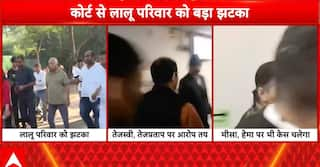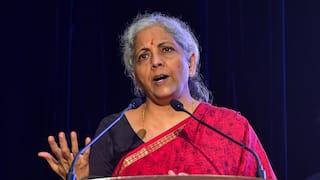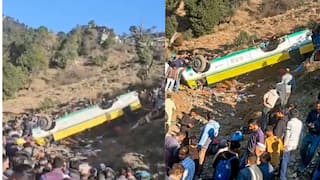Plea On Hate Speeches Perhaps May Be Right In Saying Entire Atmosphere Is Getting Sullied, Says SC
In a separate case, the top court also sought responses from the Uttarakhand and Delhi governments on police action taken against those who made hate speeches at Dharam Sansads held last year.

New Delhi, Oct 10 (PTI) The Supreme Court on Monday observed that a plea on hate speeches against minorities in the country perhaps may be right in saying the entire atmosphere is getting sullied due to this type of public discourse and needs to be curbed.
In a separate case, the top court also sought responses from the Uttarakhand and Delhi governments on what action police have taken against those who made hate speeches at Dharam Sansads held in the state and the national capital last year.
The court's observation and the direction came on a day when the Delhi police said it has filed an FIR against the Vishva Hindu Parishad (VHP) and other organisers of an event in Delhi, where certain speakers allegedly delivered hate speeches.
A bench of Chief Justice U U Lalit and Justice S R Bhat asked petitioner H Mansukhani to give details of particular instances of hate speeches including about the steps undertaken during the course of the investigation.
"This kind of a petition, though as a citizen, perhaps you may be right in saying that the entire atmosphere is getting sullied as a result of these hate speeches and perhaps you have every justifiable ground to say that this needs to be curbed," it observed.
The bench, however, said for a court to take cognisance of a matter, there must be a factual background, and observed that the petitioner may concentrate on one or two instances.
"This is too random a petition, saying there are 58 instances where someone made a hate speech." "We do not even know what are the details of the particular crime, what is the status, what is the stage, who are the persons involved, whether any crimes are registered or not registered," it added.
The bench granted time to the petitioner to submit an additional affidavit concentrating on certain incidents and giving details of the crime in question, including about the steps undertaken during the course of the investigation, if any. The petitioner may also give details as to whether the crimes were registered and who are supposed to be the culprits.
It said the affidavit be filed by October 31 and posted the matter on November 1.
During the hearing, the petitioner raised the issue of hate crime and hate speeches to target minority communities.
She also alleged that hate speeches are a "profitable business" these days.
The petitioner, who referred to the Bollywood film, "The Kashmir Files", submitted that a hate speech is like an arrow that never turns back.
The bench observed that these are matters where the normal proceedings in a crime-related issue must be undertaken.
In the second case, a bench of justices DY Chandrachud and Hima Kohli passed the order seeking responses from the Uttarakhand and Delhi governments while hearing a plea of activist Tushar Gandhi.
In his petition, the activist has sought contempt action against senior police officials for allegedly not taking any steps as per the guidelines laid down to curb hate speeches and lynching.
The bench said that at this stage it is not issuing notice on the contempt plea but is only seeking responses from Uttarakhand and Delhi as to what action has been taken with regard to the hate speeches made at the Dharam Sansads.
Both Uttarakhand and Delhi will file affidavits and explain the factual position and action taken, it said.
Advocate Shadan Farasat appearing for Gandhi said the activist was also one of the petitioners in the Tehseen S Poonawalla versus Union of India (2018 verdict) in which guidelines were laid down for curbing hate speeches and lynching.
Farasat submitted that after filing of the petition two people who had given the hate speeches were arrested but seven others were not touched by police.
The bench sought responses from the Uttarakhand and Delhi governments in four weeks.
The petitioner submitted that immediately after the events took place, the speeches were made available and in public domain but alleged that the Uttarakhand Police and the Delhi Police still did not act against the perpetrators.
Hate speeches were made in a Dharam Sansad held in Uttarakhand's Haridwar from December 17 to 19 last year and in Delhi on December 19 last year, the petition alleged. PTI ABA MNL AMP GSN GSN GSN
Disclaimer: This report has been published as part of the auto-generated syndicate wire feed. No editing has been done in the headline or the body by ABP Live.





































